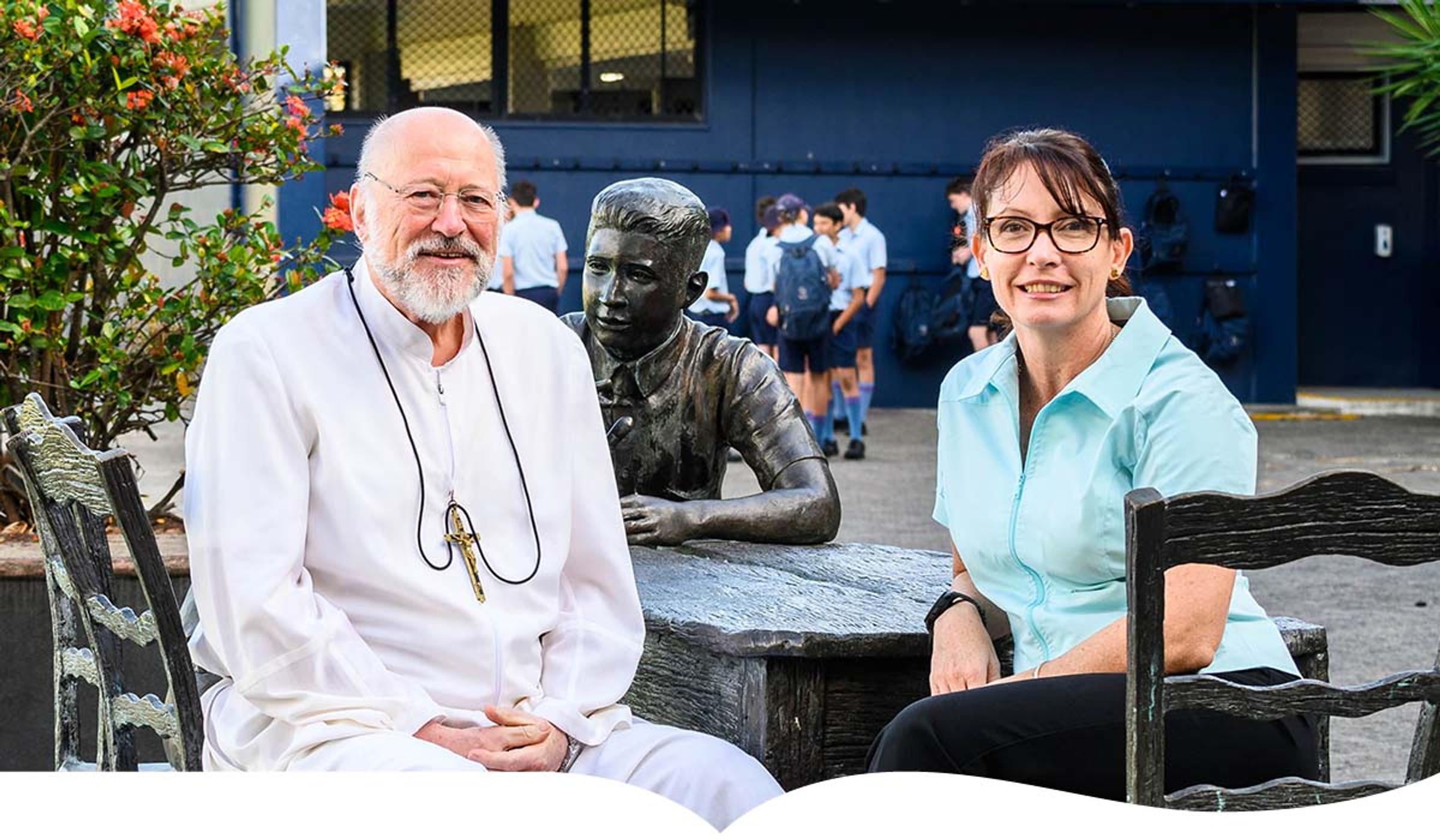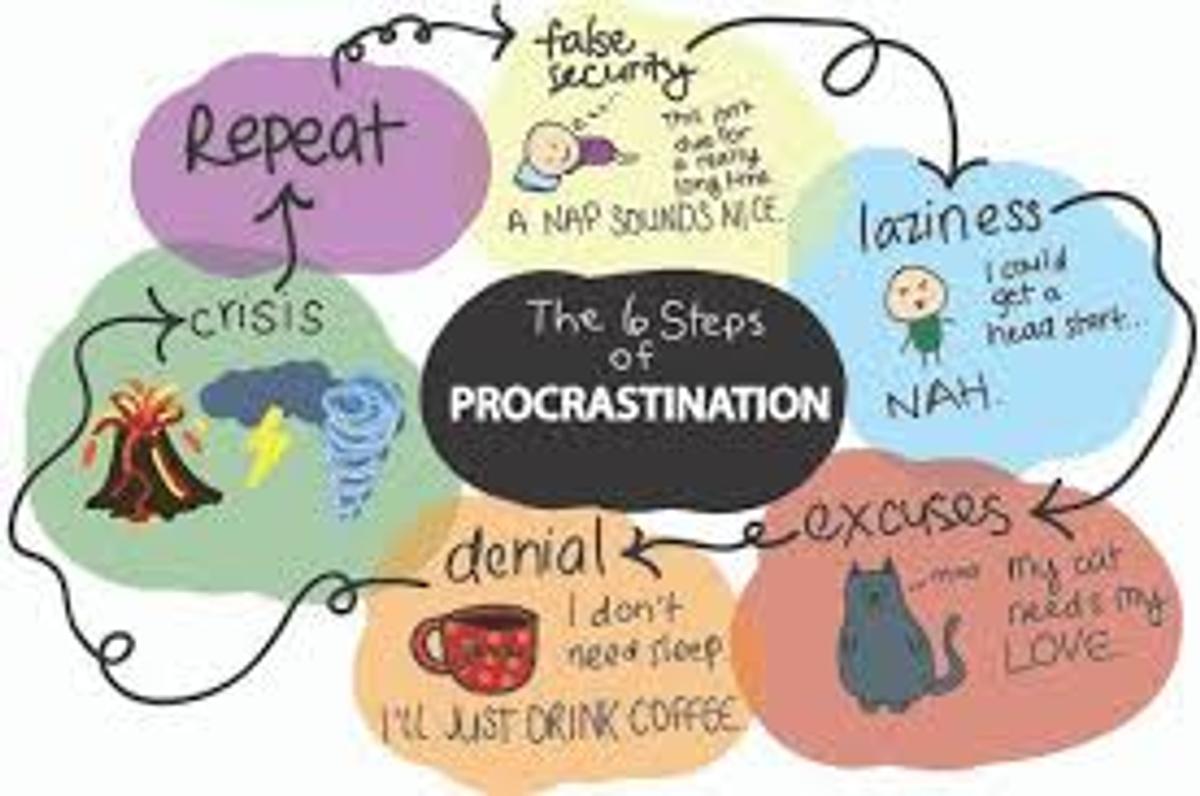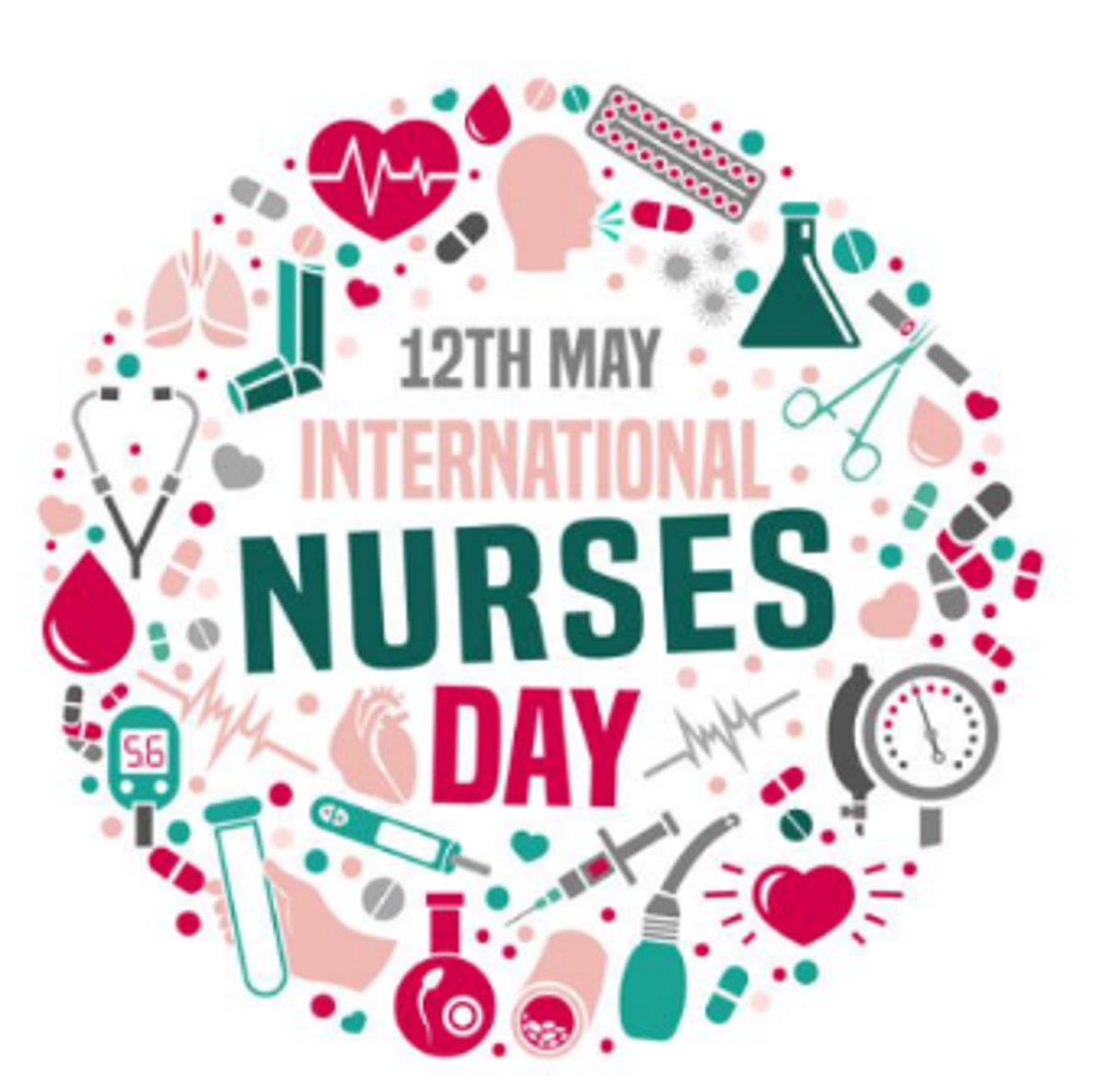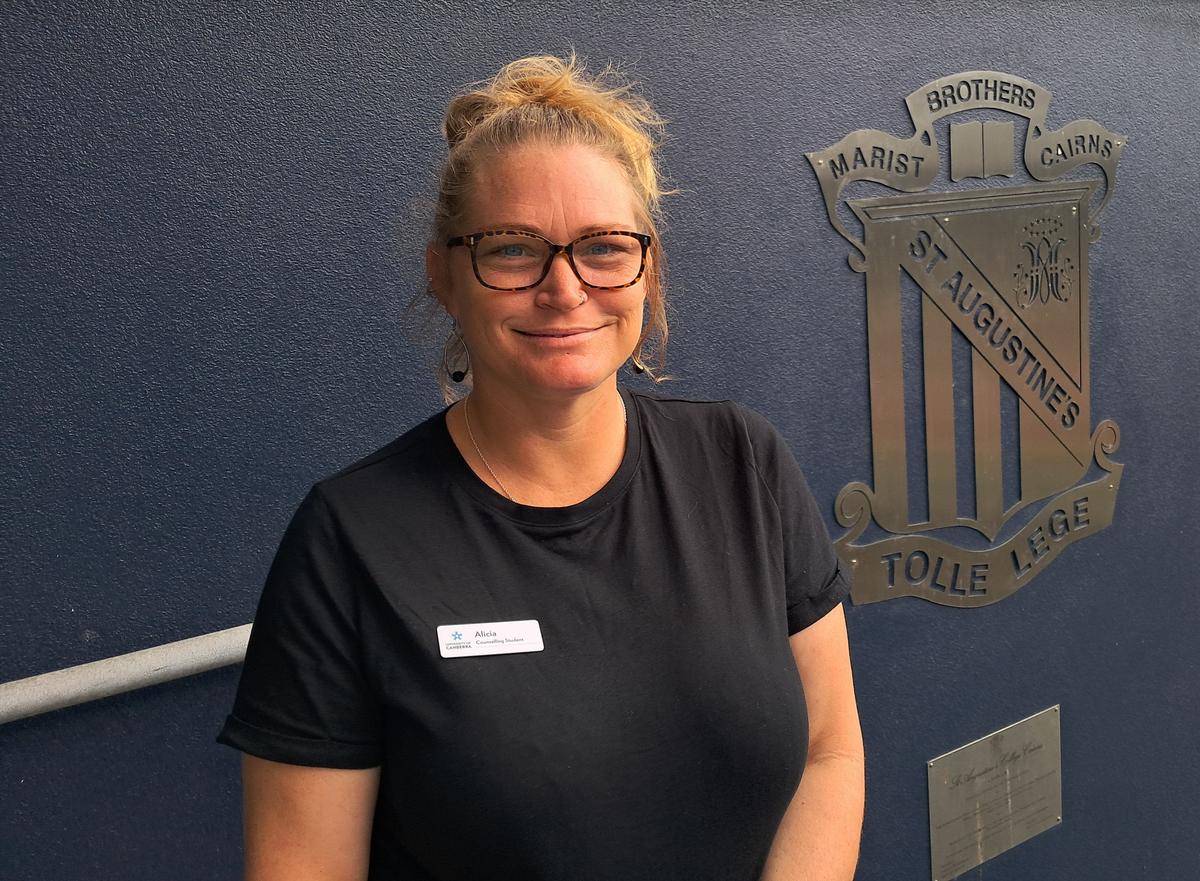COUNSELLING CONNECTIONS
News from college counsellors Br Roger Vallance FMS &
Mrs Marijke Keller

COUNSELLING CONNECTIONS
News from college counsellors Br Roger Vallance FMS &
Mrs Marijke Keller
Next week the academic side of Term 2 intensifies. Camps are mostly done and assessments are coming due in all year levels. Higher year levels are likely to see larger assessments and more of them in the coming four weeks. So firstly, let’s address one of the elephants in the room of student homework, study and assessment preparation – Procrastination. We all know this from personal experiences, so let’s look closely, and not put it off any longer.


Procrastination
I invite you to read this firstly for yourself, about yourself and then think about how to apply these strategies to your sons and daughters. Here are some strategies to combat procrastination and boost productivity.
1. Food for thought
One of the main problems with procrastination (apart from stopping people from accomplishing what matters) is that it's so easy to do. To combat this, it's best to develop systems for behaviour management rather than relying on willpower or discipline.
For example, if you're often distracted by scrolling social media on your phone, make it a rule to keep your phone in another room when you're working. This allows you to quickly break the habit while you work on addressing its root cause.


So, I invite you to consider this: what simple systems can you implement to eliminate distractions and get more meaningful things done?
2. Inspiring quote
"You cannot escape the responsibility of tomorrow by evading it today."— Abraham Lincoln
3. Free science-based tool
Eliminate Procrastination. Procrastination has many causes and a corresponding number of potential solutions. This exercise helps people understand why they procrastinate and identifies the appropriate countermeasures they should take to overcome it.
4. Book recommendation
Do It Today — Darius Foroux. This collection of engaging essays by personal development blogger Darius Foroux contains a wealth of thought-provoking ideas and practical advice for beating procrastination and living a more meaningful life by getting more done - today and every day. [Link]
5. A question for you and your sons
"How does procrastination show up for you (e.g. spending too long planning, getting side-tracked with unrelated tasks, waiting for the right moment, etc.)?". By helping clients understand how they procrastinate, they can become better at recognising when they're procrastinating and proactively adopt strategies to start taking action and get unstuck.
The source of this text: Seph Fontane Pennock, Co-founder, PositivePsychology.com


International Nurses Day


Last Sunday was International Nurses Day. The Health and Wellbeing Centre enjoys the devoted, skilled and enthusiastic commitment of two registered nurses, Mrs Sacha Donaldson and Mr Blake Patch. Mrs Donaldson works Mondays to Thursdays and Mr Patch Fridays. This week Mrs Donaldson accompanied our second cohort of Year 8s on camp on Fitzroy Island and Mr Patch will cover Thursday and Friday of this week.


International Nurses Day is held each year on the anniversary of Florence Nightingale’s birth. Coincidentally this date was shared with our Mother’s Day celebrations for 2024.
Despite being the backbone of health-care provision, according to the World Health Organisation, nurses often face financial constraints, and their role is frequently undervalued. This year’s international day aims to reshape perceptions of nursing, demonstrating how strategic investment in nursing can bring considerable economic and societal benefits.
We are privileged at St Augustine’s to have an onsite nurse for our students and staff, something most schools across the region are not fortunate enough to have. School nurses play an incredibly diverse role in our college community. Some of their many duties include:
Counselling intern


Saints is hosting a Canberra University student, Ms Alicia Gatti, as she completes the practical components of her Master of Counselling degree. Ms Gatti spends two days a week under the guidance of Br Roger. She observes and shares counselling sessions with him and contributes when students are comfortable with her presence, after giving consent. Ms Gatti will be at Saints for the rest of the term and a large part of Term 3.
Sleep
Very few of us get the sleep we need. As adults the demands of job, family life, commitments of children and other situations such as caring for parents all erode our sleeping time. Additionally, our sleep can be frequently interrupted by young children, wake-up alarms and changes in weather throughout the night. Sleep is fundamental to good health, not only so that we feel rested but also so the brain restores its own supply of functioning hormones and, most importantly for adolescents, sleep is when hormonal production for growth, healing and development is maximised.


One recent finding is that the amount of screen time directly affects our need for sleep. Increased screen usage means that our brains work harder to integrate the images on a screen which are really flickering lines that the brain processes into what we see. Hence the recommendations for sleep include for school-aged people between 9 and 11 hours each night.


The Lancet, a prestigious UK medical journal, published its editorial on sleep and our sleep needs on 10 May 2024. Click on the link below to read this brief article.
ReachOut’s new report - What parents worry about: carer concerns for youth mental health and wellbeing
Parents and carers play a critical role in supporting the wellbeing of young people as they navigate adolescence and, in many cases, mental health challenges.
The new report highlights the concerns that parents and carers have for those they care for, how parents and carers are currently seeking advice and the support they need to feel equipped to assist their young people through these challenging times. This report is linked here.
HWBC contacts
Sacha Donaldson RN sdonaldson@cns.catholic.edu.au 4052 9112
Ms Marijke Keller mkeller@cns.catholic.edu.au 07 4052 9136
Br Roger brroger@cns.catholic.edu.au 07 4052 9135